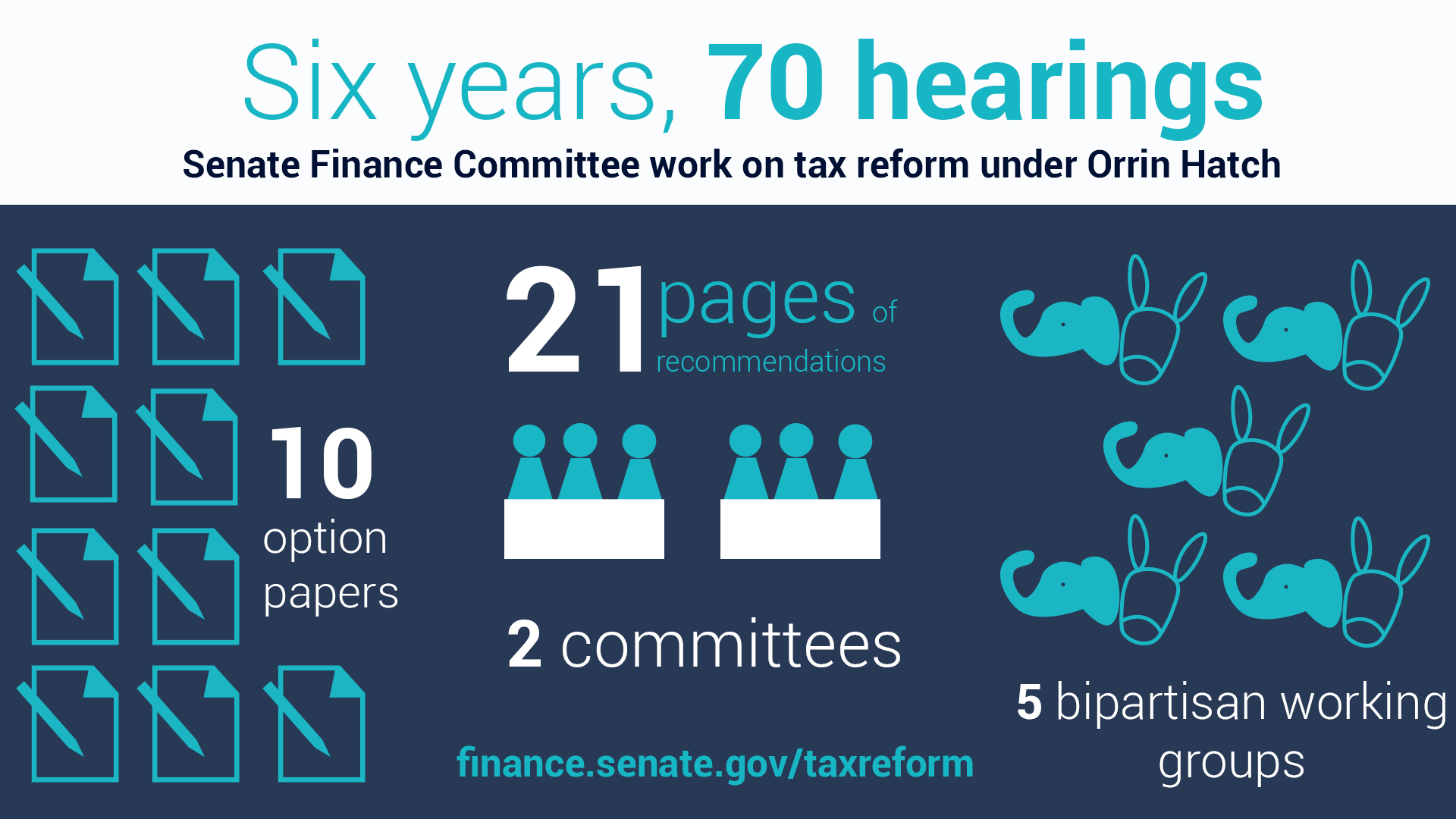Press Contact:
202-224-4515, Katie Niederee and Julia Lawless
Tax Talk: Senate Finance Committee Takes on Tax Reform
Years of Analysis, Papers, Hearings and Legislating Lay the Groundwork for a Once-In-A-Generation Tax Overhaul
The Senate Finance Committee, which has the largest committee jurisdiction in either chamber of Congress, oversees more than 50 percent of the federal budget and has jurisdiction over tax, trade and healthcare policy. Since U.S. Senator Orrin Hatch (R-Utah) became the top Republican on the committee, he’s fought to enact a strong, pro-growth economic agenda to strengthen the American economy. At the top of that list is remaking the nation’s tax code to better serve American job creators and hardworking, middle-class families across the country.
Here’s a look at the committee’s work by the numbers:
-
21 pages
In 2011, then Ranking Member Hatch led Senate Finance Committee Republicans to submit 21 pages of recommendations to the Joint Select Committee on Deficit Reduction to help lay the groundwork for comprehensive tax reform.
-
10 papers
Hatch and then-Chairman Max Baucus (D-Mont.) released 10 option papers as part of the “the blank slate” approach that was launched in 2013 to scrub the tax code and produce concrete policy solutions to bring the code into the 21st century.
-
7 principles
In December 2014, Hatch released an extensive report titled, “Comprehensive Tax Reform for 2015 and Beyond.” The report is not a tax reform plan, but a discussion of ideas and principles that outlines in detail seven key principles comprehensive tax reform should embrace, including economic growth, fairness, simplicity, and savings and investment, among others.
-
5 working groups
During the 114th Congress, as chairman, Hatch launched five bipartisan Finance Committee tax working groups to help jumpstart congressional tax reform efforts. The groups produced bipartisan papers, which served as the foundation for additional hearings and helped to set the table for a real overhaul of the nation’s tax code.
-
2 committees
Under Chairman Hatch’s leadership, the Senate Finance Committee marked up tax extenders legislation in July 2015. This action served as the foundation for the PATH Act, December 2015 legislation signed into law, which included a number of bipartisan legislative policies that were advanced by the two tax-writing committees through open process and debate.
-
6 years, 70 hearings
Over the last sixyears, the Senate Finance Committee has held 70 hearings on how the tax code can be improved and streamlined to work better for all Americans.
-
6 principals
A recent joint statement by the six tax principals in the Senate, House and administration highlighted that there is unity among the legislative and executive branches and that the tax-writing committees would take the lead in drafting legislation.
The time to reform the broken tax code is now. A pro-growth tax plan will move the U.S. economy forward, helping to produce jobs and bigger paychecks for the American people, and allowing them to keep more of their hard-earned incomes.

###
Next Article Previous Article
